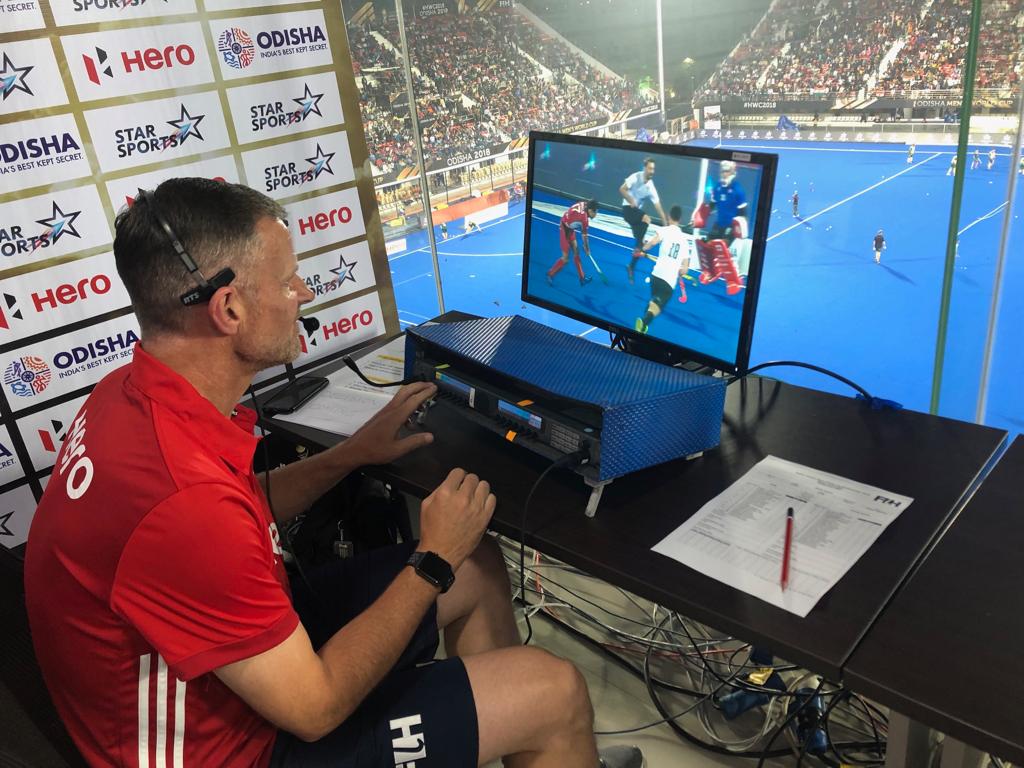4 things that make a great umpire

Ahh, the staircase to greatness. It’s long. It’s steep. It takes hard work and perseverance. But it is absolutely open to everyone willing to walk it.
From the lofty heights of Olympic glory to the weekend warriors out to have fun, great umpires can be found everywhere. And we can all develop our skills to become great (or greater) umpires. But what makes a top umpire I hear you ask? Apart from obviously knowing the rules, there are 4 things my friend…
4 things that make a great umpire
-
Purpose
Great umpires are out on the field for two reasons:
Enjoyment
There’s no point doing something you don’t love! Especially as we all know that umpiring isn’t the easiest job in the world… and look, I’m not saying that every game is going to be enjoyable. There are always games that won’t leave you feeling the best, for whatever reason. But at the end of the day, great umpires love getting out on the field because they love the game, they love the challenge and they love sharing in this wonderful sport of ours!
To make that game the best it possibly can be
Another thing that makes a top umpire is the way they see their purpose for being out on the field: to make this game the best it possibly can be. They aren’t there to be the star of the show or revel in the power, and let’s face it, they certainly aren’t in it for the money (ha!). They are there to use their skills to make sure the game is played in the best spirits of fairness and sportsmanship, to make the game flow, to encourage and allow exciting hockey for everyone to enjoy. And their satisfaction comes from seeing this job well done.
Awsome handshake🤝#HWL2017 Jo’burg pic.twitter.com/HK1wiwL3Wt
— FIH (@FIH_Hockey) August 20, 2017
Carolina de la Fuente knows where it’s at.
-
Mental Toughness
We all know that being an umpire isn’t an easy job sometimes. It can be a thankless task. When you do a great job no one notices and when you don’t do such a great job… well, let’s just say that people notice. And they’ll often let you know about.
Part of becoming a great umpire requires building a ‘thick skin’. And I know, I know, why should that be a requirement? People should just be lovely all the time! But we’re in a position where our decisions impact the game, so of course there are always going to be people who disagree with us. Rising above the criticism is a big part of growing as an umpire.
On the field, in the heat of the moment, mental toughness means being able to keep a cool head so that you can make the best decision. It’s not letting the criticism impact your next decisions. This is especially important when you’re under the pump and it seems like you have ALL the play (where’s my co-umpire at? Sub please!). Support from your co-umpire if you’re mic’d up can be invaluable here. It’s nice to have a friendly voice in your ear telling you you’re doing alright!
Off the field, this means not letting comments from players, coaches or spectators get to you. If you know you did a great job and people just aren’t happy, then don’t doubt yourself. Talk over anything that is worrying you with your colleague or umpire coach, but don’t let the haters get you down. If you know you made some mistakes during the game, then mental toughness means not beating yourself up. Go over them, learn from them, then move on.
For more information, check out these posts on Mental Fitness, Controlling Your Emotions and Stepping Up to the Big Games.
Mistakes and criticism are part of the job, but don’t let them get you down. You’ve got this!
-
Communication
Being a top umpire requires good communication skills, and two things in particular go a long way – respect and approachability. Respect does indeed go both ways, and engaging with players and coaches in this manner will lay the foundations towards building relationships of trust for the future. People also appreciate it when you are open to discussing decisions and interpretations, both on and off the field (at the appropriate times).
Approachability
So how can you seem more approachable? Try having a quick chat to the coaches before the game or maybe even sit down with them after the game if that would be productive. Another tip is to take the time to explain why you blew a particular decision when things get a little heated – just be careful you don’t open yourself up for a long dialogue or argument!
Of course, the world isn’t perfect, and there will be times when the other side of the fence can’t always express their emotions in the most respectful way. White line fever is a thing! So, can I let you in on a little secret for these times? All anyone wants is to be listened to. To feel as though you are taking their concerns seriously.
which links in with…
Respect
Taking a moment to listen to a player can win you big points in both the respect and approachability columns. If they ask you to check with your colleague about that PC (even though, yes, it absolutely did hit their foot, and no, there is no way you are changing your mind), checking with your colleague allows the team to trust that you are willing to get the right decision for the good of the game. Obviously, there’s a line – you don’t want to do this for every single decision, but in the game changing situations this can really make a big difference.
For instance, I umpired a game recently where I was unsighted when the ball hit the attacker’s foot in the circle before she put it in the back of the net and I blew a goal. Whilst all of the defenders questioned me, one in particular screamed a variety of colourful phrases in my general direction. I directed her to the naughty chair to rethink how she might address her question next time, and then promptly went and asked my colleague if I had missed something…
After confirming that it was indeed a FH to the defence, the team were very grateful that I had checked and no one else yelled at me during the rest of the game. I had set the standard that that kind of behaviour would not be tolerated, but they knew I was willing to check with my colleague if needed. AND the player came up to me after the game and apologised. Win-win! Granted, it doesn’t always happen like that, but it’s nice when it does 🙂

-
Feel for the game
This one gets thrown around all the time, but what does it actually mean? Well, having a feel for the game largely boils down to empathy. Putting yourself in the shoes of the players, and in a larger (and more metaphorical) sense, the game itself. You should be asking yourself questions like:
“What was that player trying to achieve?” – Were they trying to do a skilful shave tackle and just failed miserably? Or were they trying to break down the play so that their team could get back?
“What does this game need from me right now?” – in a tight game with rising tensions, would the game benefit from a serious demeanour? Or would a calm and relaxed manner be more helpful?
Being able to read the intentions of the players and the feel of the game will help you ride the waves of action, and being able to put yourself on the other side will help you determine the most appropriate action to get the best out of the game.

So, there it is. There are, of course, lots of other things that go into the recipe of greatness, but these are the four fundamental ingredients. They are the building blocks that we all need to develop to move forward. So on that note, onwards and upwards! Go climb that staircase and be fabulous!
What do you think makes a great umpire? Have I left anything out? Let me know in the comments!
Read about the experiences of some top umpires on the Experiences page, or learn more about becoming a great umpire yourself on the Development page.
You can make sure you never miss a post by signing up to the newsletter. Don’t worry, I value your inbox just as much as my own and I promise never to spam you!
For behind the scenes action and extra tips and tricks, follow me on Facebook, Instagram and Pinterest. And if you liked this post, why not share it using the buttons below?




You must be logged in to post a comment.